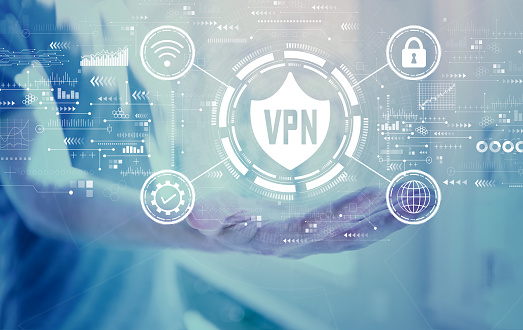Choosing the right VPN can be a daunting task when you’re just starting out. Do you go with the completely “free” option or the time-limited trials? Well, using a VPN free trial is a great way to try services out without the usual limitations or potential security risks of a free VPN.
Here’s everything you need to know.
Table of Contents
Free VPNs: Good Idea or Not? (Mostly Not)
The main draw of a free VPN is its highly tempting price point. However, “free” isn’t always better. Before we get into the downsides, here are a few valid reasons to use a free VPN as an expat:
- Unblock websites like home banking or investment accounts while abroad, as well as some copyrighted YouTube videos and news sites.
- Get around firewalls at work, school, airports, and other locations with restrictive hotspots.
- Maintain some degree of security and privacy on public Wi-Fi, especially at hotels where a lot of hacking activity seems to be focused.
If you only browse the Internet casually, make online payments every so often, and use public Wi-Fi a lot, free VPNs can be a decent option. Just make sure to vet your provider properly. Otherwise, you risk having your data sold off to shady third parties or leaked online, in some cases even when the VPN’s privacy policy states that they keep no user logs.
Getting your device infected with malware is also a possibility. Some free VPNs resort to injecting ads into your browser, or may even hijack your device into a botnet to carry out cyber attacks. As you can imagine, the resulting damages can easily exceed the price of a long-term VPN subscription.
As mentioned, you won’t need to worry about these issues if you use one of the few remaining trustworthy free VPNs out there. However, there are other limitations that may hurt your overall experience on the web. Scroll on for the details
Also Read: Dealing with Data Loss in the Workplace
Why Free Trial VPNs Are the Better Choice
Aside from the short testing period (anywhere between one day to a full week), getting a free trial VPN means you won’t have to deal with:
- Slow network speeds – free trials let you take advantage of a VPN provider’s full performance without bandwidth throttling, unlike free VPNs.
- Low server numbers – you have access to wide networks numbering thousands of servers, instead of just a handful at key locations (and often overcrowded).
- Meager data caps, between 500 MB to 10 GB per month – free trials let you download and stream as much content as you want.
Finally, since we’re on the topic of streaming, we should mention that free VPNs rarely work on sites like Hulu, BBC iPlayer, foreign Netflix libraries, etc. In fact, Netflix aggressively blocks VPNs, and that applies to numerous other streaming services. They work with aggregating services (such as MaxMind) to blacklist VPN IP ranges.
Considering most people use VPNs to get around pesky geo-restrictions, free trials are your best option. They have the funding required to refresh their IP ranges every so often, and stay one step ahead of Netflix and co. And hey, if you’re not impress with their services, you can always move on to the next one with no strings attached.
Also Read: Five Common Buck Converter Mistakes and How to Avoid Them

